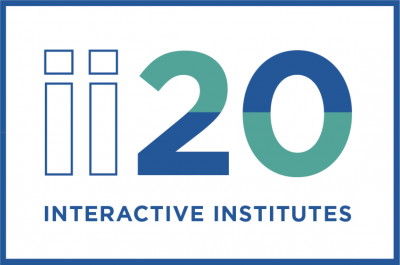
Resource Library
Guides. Briefs. Toolkits. Quick reference information. IDC and its partners created these data quality resources to help states better prepare to address their existing or emerging IDEA data quality needs. Use our search and filtering tools to navigate the library.
Resources 1 - 7 of 13
Format: Quick Reference
SPP/APR Indicator CardThe SPP/APR indicators measure child and family outcomes as well as compliance with the requirements of IDEA. This quick-reference resource from IDC includes a list and brief definition of all the Part B FFY 2020–2025 SPP/APR indicators (including the new Indicator 18!), as well as a list of file specifications associated with each of the seven IDEA 618 data collections, all in one convenient package. Print one out here or contact your IDC State Liaison for a laminated version you can carry along wherever you go.
Format: Quick Reference
Comprehensive IDC Part B Tool & Product ListThis resource is a list of IDC produced Part B tools and products arranged by topic area. The list provides a brief description and link to each tool or product. Users can quickly scan for useful tools and products to ensure that they have explored all of the many Part B available resources that IDC has produced.
Format: Quick Reference
FFY 2020–2025 SPP/APR Resources At-a-GlanceThe FFY 2020–2025 SPP/APR Resources At-a-Glance is a list of resources from OSEP and IDC that states can use to support their understanding and actions related to the FFY 2020–2025 Part B SPP/APR.
Format: Guides and Briefs
Building Your SPP/APR Stakeholder Engagement Plan: 10 Essential QuestionsBuilding Your SPP/APR Stakeholder Engagement Plan: 10 Essential Questions can help states develop and report on authentic and broad stakeholder engagement as required in the FFY 2020–2025 SPP/APR. This interactive resource guides states through 10 key questions they should be asking themselves as they build their stakeholder engagement plans. Each question provides detailed options to consider that will assist states in preparing to describe their engagement activities in their SPPs/APRs.
Format: Guides and Briefs
State Determinations of Local Education Agency (LEA) PerformanceThis resource provides a summary of findings from 28 states’ publicly available LEA determinations processes. States can use this resource to learn more about the data elements, calculation methodologies, and determination category criteria these 28 states used for making LEA determinations. This information can be particularly valuable for those states considering revisions and updates to their own LEA determinations processes.
Format: Quick Reference
Navigating Uncharted Waters: Engaging Stakeholders in Part B Indicator 3 Baseline and Target SettingThis customizable resource includes a PowerPoint template and presentation notes that provide states with an overview of the Part B SPP/APR reporting changes to Indicator 3, which addresses participation and performance of children with individualize education programs (IEPs) on statewide assessments. The resource reviews the new requirements related to stakeholders, particularly parents, in the SPP/APR and implications for Indicator 3 and shares strategies for engaging stakeholders in the optional baseline and required target setting processes. States are able to customize the information in the PowerPoint to reflect their own contexts and to meet the needs of different audiences.
Format: Trainings
ii20 Session Presentations and HandoutsThe Interactive Institutes 2020 – Building and Sustaining a Culture of High-Quality Data provided opportunities for participants to take a deep dive into data quality topics to learn about data culture change. Participants were able to discover best practices to improve data collection, reporting, analysis, and use. They also engaged with peers and TA providers about trending data quality topics. Each session presented powerful ideas and actionable plans to improve work processes and data quality.








